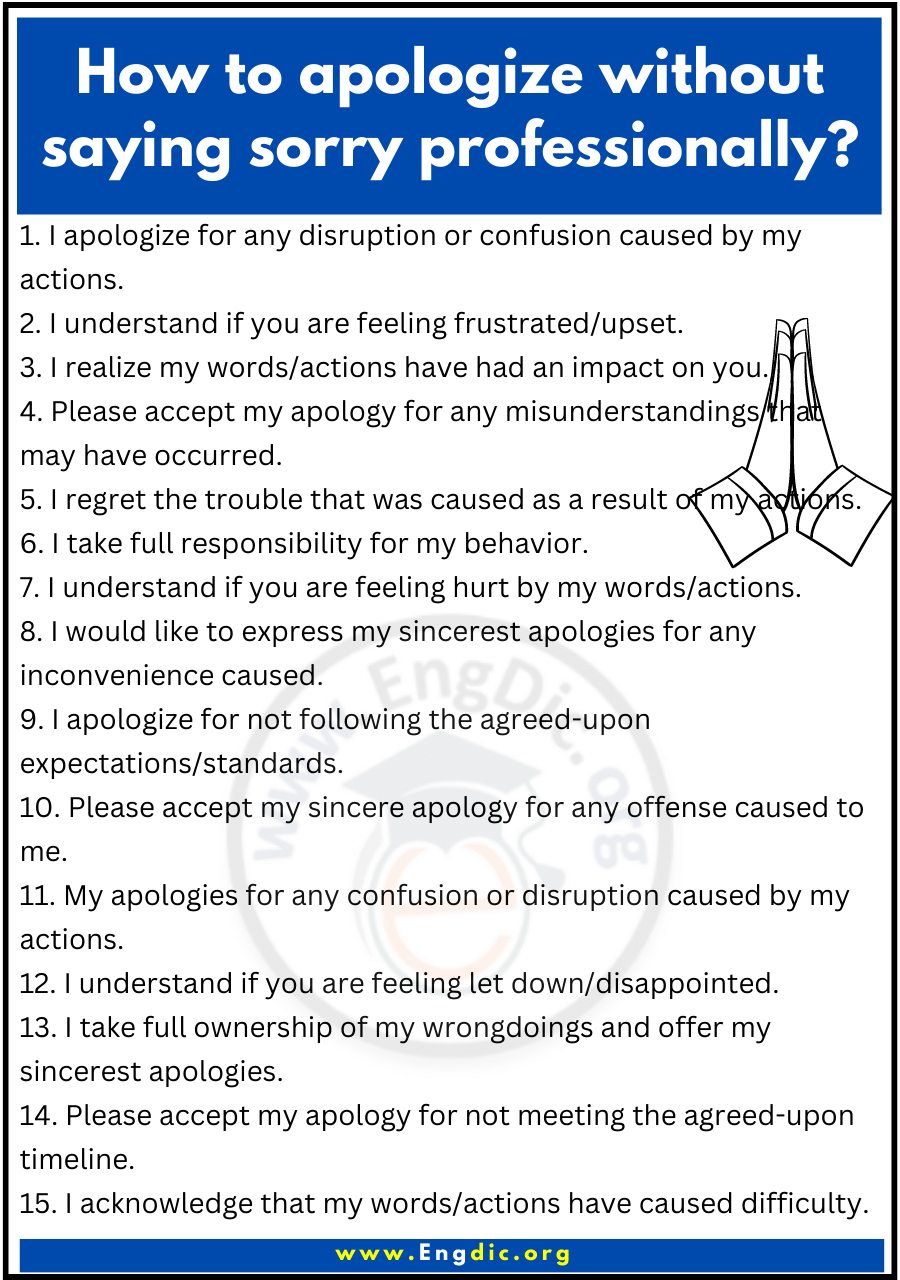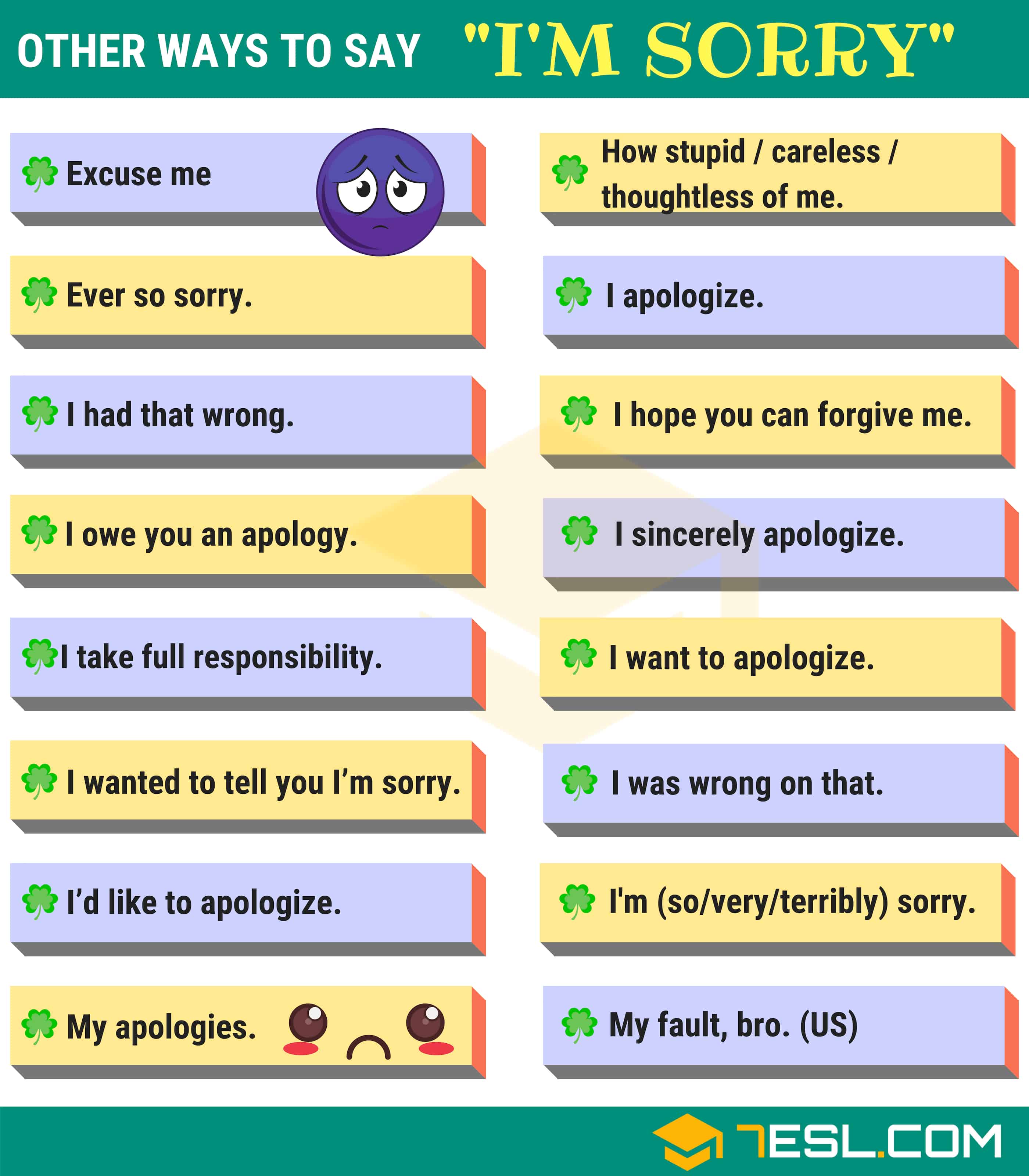Ways To Say Sorry Without Saying Sorry

Relationships fractured? Words failing you? Saying "sorry" isn't always enough – or even the right approach. Experts reveal how to mend fences and rebuild trust without uttering the dreaded word.
This article provides actionable strategies for expressing remorse and initiating reconciliation, focusing on behavior changes and indirect communication. We delve into specific techniques applicable across personal and professional contexts, addressing the challenges of navigating conflict resolution without relying on the standard apology.
Actions Speak Louder: Demonstrating Remorse Through Behavior
According to Dr. Lillian Glass, a communication and body language expert, true remorse is best conveyed through demonstrable change. "A sincere apology shows they understand the damage they have caused," she said in her book, *Toxic People*, but actions solidify it.
Start by identifying the specific behavior that caused the offense. Then, actively work to modify that behavior. For instance, if lateness is the issue, consistently arrive early or on time.
This demonstrates a commitment to respecting the other person's time and feelings. Don't just say you'll change; show it.
Active Listening and Validation: Understanding Their Perspective
Active listening is crucial in repairing damaged relationships. Focus intently on what the other person is saying, both verbally and nonverbally, without interrupting.
Validate their feelings by acknowledging the validity of their emotions. Instead of saying "I'm sorry you feel that way," try "I understand why you're feeling hurt and frustrated."
This demonstrates empathy and a genuine desire to understand their perspective. "People want to be heard and understood more than they want an apology," emphasizes relationship counselor, Anita Varma, in a Psychology Today article.
Offering Practical Help: Taking Responsibility and Making Amends
Instead of a simple apology, offer concrete assistance to rectify the situation. If you made a mistake at work, volunteer to correct it, even if it requires extra effort.
This demonstrates a sense of responsibility and a willingness to make amends. Don't just acknowledge the problem; be part of the solution.
Small acts of service can also go a long way in rebuilding trust. Offer to run errands, help with chores, or simply provide support during a difficult time.
Indirect Communication: Subtle Ways to Show You Care
Sometimes, a direct apology can feel insincere or forced, especially if trust is severely damaged. In these situations, indirect communication can be more effective.
Consider a thoughtful gift or gesture that acknowledges the other person's needs or interests. A handwritten note expressing appreciation, even without directly addressing the offense, can also be powerful.
Furthermore, subtly changing your behavior can indicate remorse. Be more attentive, considerate, and patient in your interactions. "Small gestures can speak volumes and signal to the other person that you are trying to repair the relationship," explains Dr. John Gottman in his research on successful relationships.
"The key is to be genuine and authentic in your efforts. Don't try to manipulate the other person into forgiving you. Focus on demonstrating genuine remorse and a commitment to positive change." - Dr. Phil McGraw.
Moving Forward: Patience and Persistence
Rebuilding trust takes time and effort. Don't expect instant forgiveness or a return to normalcy overnight. Be patient and persistent in your efforts to repair the relationship.
Continue to demonstrate remorse through your actions and communication. Be open to feedback and willing to adjust your approach as needed.
If the situation is complex or involves significant damage, consider seeking professional help from a therapist or counselor. They can provide guidance and support in navigating the reconciliation process. Remember, the goal is not just to avoid saying "sorry," but to demonstrate genuine remorse and rebuild trust through your actions.


















